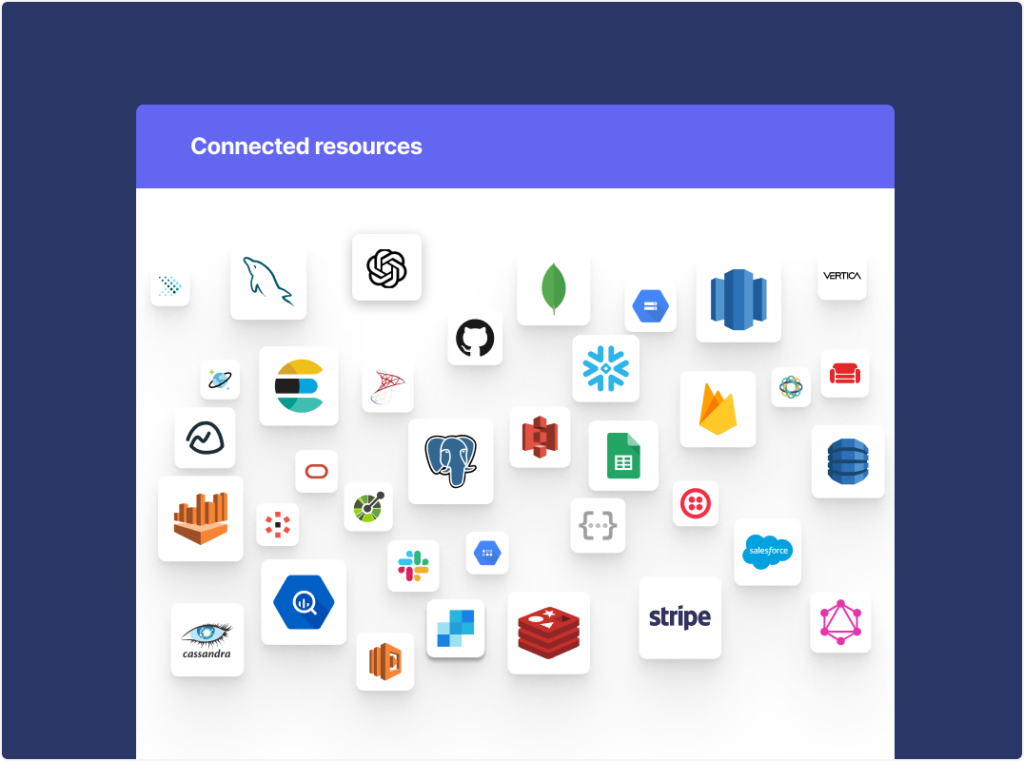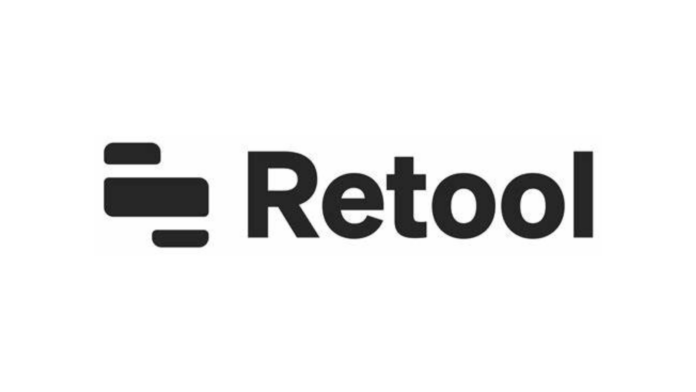In the fast-paced world of business, integrating artificial intelligence (AI) into everyday applications has become increasingly important. However, many enterprises face challenges in effectively utilizing AI due to difficulties in accessing and maintaining relevant data. Retool, a low-code platform initially designed for building line-of-business apps, has recognized this need and has launched a series of new tools to simplify the process of creating AI-based applications. With the introduction of a hosted vector store and AI-based actions, Retool aims to provide its users with the capabilities to easily add context to large language models and utilize AI for tasks such as text summarization and image generation. By streamlining the integration of AI smarts into business apps, Retool is empowering enterprises to leverage the power of AI in their everyday operations.

1. The Need for AI-Enabled Business Apps
In today’s business landscape, there is a growing interest in leveraging artificial intelligence (AI) to enhance various aspects of operations. AI technology has the potential to revolutionize the way businesses operate, from automating repetitive tasks to providing powerful insights based on data analysis.
1.1 The Growing Interest in AI
Businesses are increasingly recognizing the value of AI in driving growth, improving efficiency, and gaining a competitive edge. AI-powered applications have the ability to analyze large volumes of data, identify patterns and trends, and provide valuable insights that can inform strategic decision-making.
1.2 Reasoning Over Internal Data
One of the main reasons businesses are interested in AI is its ability to reason over internal data. By leveraging AI technology, companies can unlock the potential of their data and gain deeper insights into customer behavior, market trends, and operational efficiency. AI-enabled business apps can help organizations make data-driven decisions and improve overall performance.
1.3 Limitations of Copying and Pasting Data
Traditionally, businesses have relied on manual methods of integrating data into AI models by copying and pasting relevant information. However, this approach is limited in its scope and can quickly become ineffective and costly. Businesses need a more efficient and scalable solution to integrate data into AI models and derive meaningful insights.
2. The Importance of Context in AI-Based Apps
One of the key challenges in developing AI-based applications is ensuring that the models have access to the right context. Contextual information is crucial for AI models to understand and interpret data accurately. Without proper context, AI models may produce inaccurate or irrelevant results.
2.1 Adding Context to Language Models
Language models are a popular type of AI model used in various applications, such as chatbots and content generation. Adding context to language models is essential to improve their accuracy and relevance. AI-based apps need to leverage contextual information to provide meaningful responses and recommendations to users.
2.2 Vectorization for Accessibility
Vectorization is a technique used to convert data into vectors, which are numerical representations that AI models can easily process. By vectorizing data, businesses can make it more accessible and understandable for AI models. This allows for better context understanding and more accurate predictions or recommendations.
2.3 State-of-the-Art Vector Search Services
To address the need for context in AI-based apps, various companies have developed vector search services. These services enable businesses to store and query vectorized data, facilitating faster and more efficient retrieval of relevant information. Companies like Google, Microsoft, DataStax, and MongoDB have all launched vector search services to cater to the growing demand for AI-enabled apps.
3. Challenges in Building Custom AI Applications
While the potential benefits of AI-enabled apps are clear, there are several challenges that businesses face when building custom AI applications for their specific use cases.
3.1 Getting Data into Vectorized Databases
One of the challenges is getting data into vectorized databases. Businesses need to find ways to efficiently convert their data into vector format and store it in a database that AI models can access. This involves implementing the right tools and processes to ensure accurate vectorization and seamless integration with AI applications.
3.2 Keeping Data Up to Date
Another challenge is keeping the vectorized data up to date. As businesses generate new data or make changes to existing data, it is essential to ensure that the vectorized representation is updated accordingly. This requires a robust data synchronization process to maintain the accuracy and relevance of the AI models.
3.3 Syncing Vectorized Databases with Other Systems
Integrating vectorized databases with other systems can also pose a challenge. Businesses often have multiple data sources and applications that need to be connected with AI-enabled apps. Ensuring smooth synchronization and data flow between vectorized databases and other systems is crucial for the overall success of AI integration.
4. Introducing Retool Vectors
To address the challenges faced by businesses in building custom AI applications, Retool has introduced Retool Vectors, a hosted vector storage service. Retool Vectors leverages the power of the open-source pgvector extension for Postgres to provide a scalable and efficient solution for storing and accessing vectorized data.
4.1 Hosted Vector Storage Service
Retool Vectors offers businesses a cloud-based storage service where they can store their vectorized data securely. The service ensures high availability and scalability, allowing businesses to handle large volumes of data without compromising performance.
4.2 Leveraging the pgvector Extension for Postgres
By utilizing the pgvector extension for Postgres, Retool Vectors provides businesses with a powerful and flexible solution for vector storage and retrieval. Postgres is a widely used relational database management system, and the pgvector extension adds vector-related functionality to enhance the capabilities of Postgres for AI applications.
4.3 Benefits of Using Retool Vectors
Using Retool Vectors offers several benefits to businesses. First and foremost, it simplifies the process of storing and accessing vectorized data, eliminating the need for businesses to develop and maintain their own vector storage infrastructure. This saves time and resources while ensuring a reliable and scalable solution.
Retool Vectors also integrates seamlessly with other Retool services, such as Workflow, allowing businesses to streamline their AI workflows and ensure data synchronization between vectorized databases and other systems. This enhances efficiency and improves the overall user experience of AI-enabled apps.
5. Real-Life Application: Retool’s AI Chatbot
To showcase the real-life application of Retool’s AI capabilities, the company has tested the use of Intercom’s GPT-powered AI chatbot for customer service interactions. By combining the power of the chatbot with Retool’s vectorized database, the company was able to significantly improve its ticket closure rate.
5.1 Testing Intercom’s GPT-Powered Chatbot
Retool integrated Intercom’s GPT-powered AI chatbot into its customer service operations to handle support interactions. The chatbot, with access to a rich context of business data, was able to close approximately 20% of tickets, showcasing the effectiveness of AI in improving customer service efficiency.
5.2 Boosting Ticket Closure Rate with Vectorized Data
To further enhance the ticket closure rate, Retool leveraged its vectorized database, which included data from Salesforce and other sources. By utilizing the power of vectorized data, the custom AI chatbot achieved a ticket closure rate of almost 60%. This significant improvement highlighted the importance of context and vectorization in AI-based applications.
5.3 Using OpenAI’s API for Querying Transcripts
Retool also utilized OpenAI’s API to query vectorized transcripts from sales calls. This enabled the company to extract valuable insights and enhance its sales processes. By combining Retool’s AI capabilities with external APIs, businesses can tap into a wealth of data and drive actionable outcomes.
6. AI-Based Actions for Common Use Cases
Retool understands the diverse needs of businesses when it comes to AI integration. To cater to various use cases, Retool has introduced AI-based actions for common scenarios.
6.1 Text Summarization and Classification
Retool offers AI-based text summarization and classification capabilities, allowing businesses to automate tasks such as summarizing articles or categorizing data. By leveraging AI algorithms, businesses can save time and improve efficiency in handling large volumes of textual data.
6.2 Image Generation
Retool’s AI capabilities extend to image generation, enabling businesses to automatically generate images based on specific criteria or parameters. This opens up possibilities for creative applications and enhances visual content creation processes.
6.3 Retool’s Partnership with OpenAI
To provide businesses with cutting-edge AI capabilities, Retool has partnered with OpenAI. This collaboration allows Retool to leverage OpenAI’s advanced AI models and APIs, offering businesses access to state-of-the-art AI technologies.
7. Integration with Retool Workflows
Retool’s AI solutions seamlessly integrate with Retool Workflows, enhancing automation and efficiency for businesses.
7.1 Enhancing Automation and Efficiency
By incorporating AI capabilities within Retool Workflows, businesses can automate repetitive tasks, streamline processes, and enhance overall efficiency. The integration of AI-based actions into workflows enables businesses to leverage the power of AI without the need for complex programming or development.
7.2 Accelerating AI Adoption for Businesses
Retool’s integration of AI into its low-code platform accelerates the adoption of AI technology for businesses. The user-friendly interface empowers individuals across different roles and skill levels to leverage AI capabilities, driving innovation and unlocking new opportunities for growth.
7.3 Ensuring Safety and Reliability
Retool understands the importance of safety and reliability in AI applications. By partnering with reputable AI providers like OpenAI, Retool ensures that businesses have access to trustworthy and secure AI technologies. This enables businesses to deploy AI-enabled apps with confidence, knowing that their data and operations are protected.
8. Retool’s Impressive Financial Backing
Retool’s commitment to delivering innovative AI solutions is reflected in its impressive financial backing.
8.1 Recent Funding Round and Valuation
Retool recently raised $45 million in a funding round, bringing its valuation to $3.2 billion. This substantial investment highlights the confidence and support from investors in Retool’s mission to make custom software development accessible and AI integration more seamless.
8.2 Making Custom Software Development Accessible
Retool’s low-code platform and AI capabilities make custom software development more accessible for businesses of all sizes. By simplifying the development process and providing pre-built AI components, Retool enables businesses to leverage AI technology without the need for extensive coding knowledge or resources.

9. Customer Testimonials and Success Stories
Retool’s customers have experienced significant benefits and success through the adoption of Retool’s AI-enabled solutions.
9.1 Experiences of Businesses Using Retool
Customers using Retool have reported improved operational efficiency, cost savings, and enhanced decision-making capabilities. By leveraging AI technology within Retool’s platform, businesses have been able to unlock the value of their data and drive transformative outcomes.
9.2 Positive Impact on Operational Efficiency
Retool’s AI capabilities have had a positive impact on operational efficiency for businesses. By automating repetitive tasks and streamlining workflows, businesses can optimize resource allocation, reduce manual errors, and achieve greater productivity.
9.3 Empowering Companies to Embrace AI
Retool’s AI-enabled solutions have empowered companies to embrace AI technology and leverage its potential for driving innovation and growth. By providing user-friendly tools and comprehensive support, Retool has democratized AI adoption, making it accessible to businesses across industries.
10. Future Developments and Expansion Plans
Retool is committed to advancing AI integration and addressing emerging industry trends to meet the evolving needs of businesses.
10.1 Retool’s Roadmap for Advancing AI Integration
Retool has a comprehensive roadmap for further advancing AI integration. This includes enhancing the capabilities of Retool Vectors, expanding AI-based actions for common use cases, and exploring new partnerships and collaborations.
10.2 Potential Partnerships and Collaborations
Retool is actively seeking partnerships and collaborations with industry leaders and AI technology providers. By joining forces with other organizations, Retool aims to leverage their expertise and capabilities to create even more powerful AI solutions for businesses.
10.3 Addressing Emerging Industry Trends
Retool is closely monitoring emerging industry trends and technological advancements in the AI space. By staying at the forefront of innovation, Retool can proactively address the evolving needs of businesses and continue to deliver cutting-edge AI-enabled solutions.
In conclusion, the need for AI-enabled business apps is evident, as businesses seek to unlock the potential of AI in driving growth and improving efficiency. Retool’s comprehensive suite of AI capabilities, including Retool Vectors and integration with Retool Workflows, provides businesses with a user-friendly and scalable solution for AI integration. With an impressive financial backing, customer testimonials, and a commitment to future development, Retool is poised to lead the way in making AI more accessible and impactful for businesses of all sizes.











